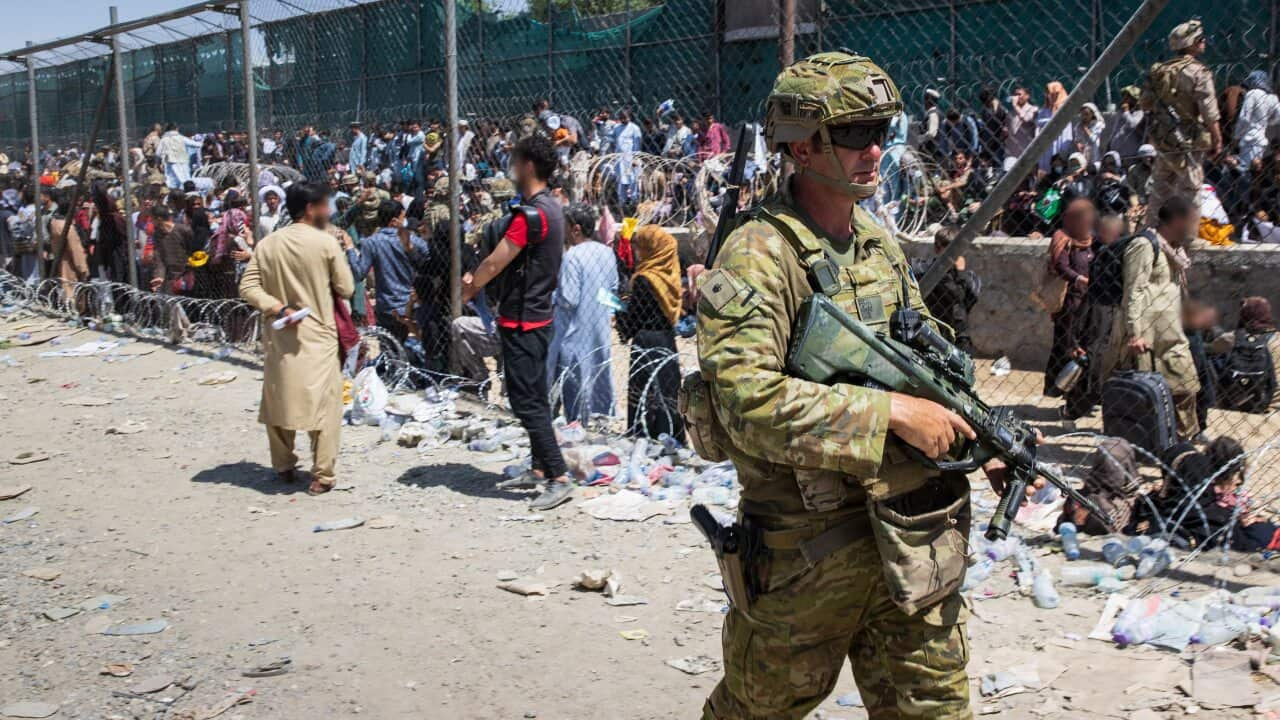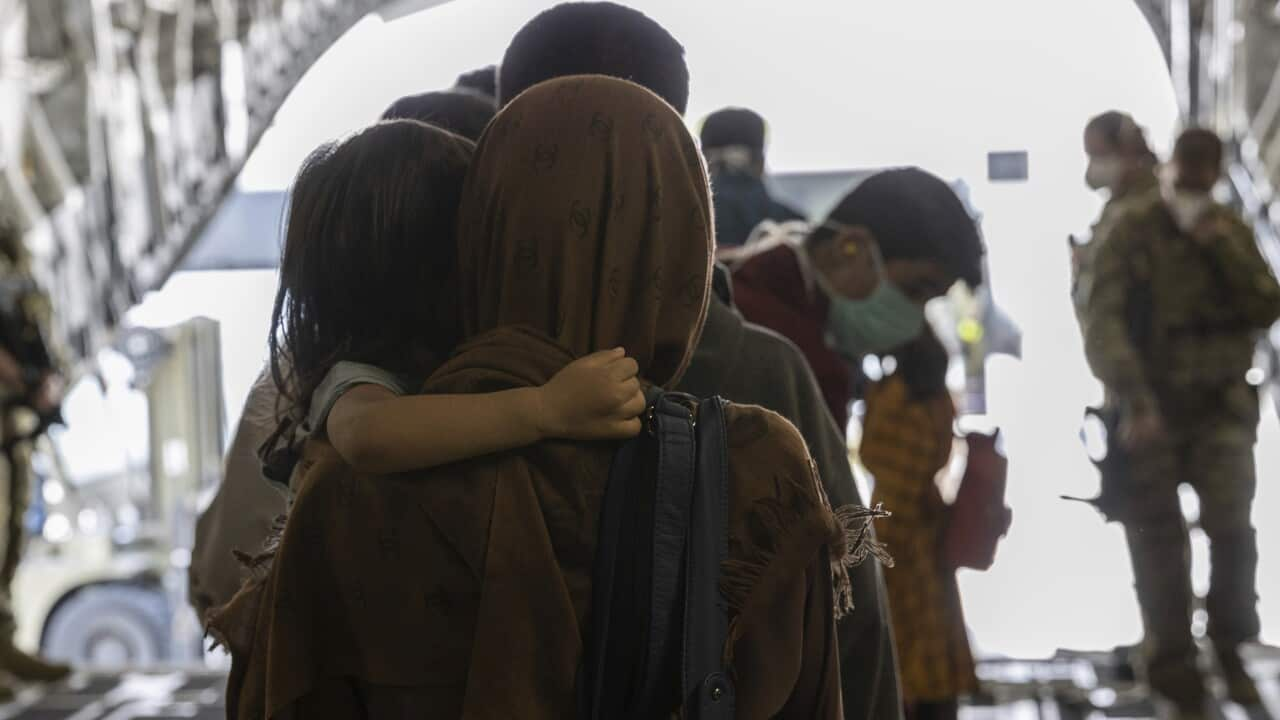The Department of Home Affairs must urgently improve its visa processing and communication with Afghan nationals seeking refuge in Australia, a Senate committee has found.
The inquiry examining Australia’s engagement with Afghanistan handed down its final report on Tuesday, after being launched shortly after the Taliban’s takeover of Kabul last August.
The fresh report’s recommendations include calling on the Department to respond to the uncertainty facing those with links to Australia in navigating the complexities of the visa system.
It found nearly 1,400 people who were granted emergency visas for Australia had their approvals lapse before they could arrive and also, significantly, there were no dissenting reports from government members, indicating that they are in principle supportive of the recommendations.
It calls on the Department to “urgently” send acknowledgements to all visa applicants from Afghanistan to assist with “ongoing processing and communication.”
Another call is for more detailed criteria and guidance to be published about how visas for the Afghan cohort will be prioritised.
The report also comes some six months after its interim findings laid bare flaws in Australia’s withdrawal from Afghanistan, raising concerns over communication failures and shortsighted planning.
The number of people evacuated during the initial rescue mission to Kabul was 4,158, but the total figure to have reached Australia now sits at about 6,500 people.
The inquiry was conducted by the Foreign Affairs, Defence and Trade References Committee - which was chaired by the late Senator Kimberley Kitching and deputy chaired by Liberal Senator Eric Abetz.
It included three Labor Senators and three Liberal Senators as well as Independent Senator Jacqui Lambie.
In the hurried evacuation mission in the final days of the allied presence in Kabul last year, the Australian government issued some 6,043 emergency visas to Afghan nationals.
But the report raises concern that some of those “deemed worthy of evacuation” have lost the ability to travel to Australia and now face “lengthy wait times” for an alternative visa pathway.
Though some 4,328 of these people arrived in Australia, the parliamentary report says there remained 1,398 people whose visas expired before they could enter the country.
“[The committee] requests that all individuals who were initially issued subclass 449 visas be granted the opportunity to travel and settle in Australia,” the report said.
The committee also takes aim at the failures of the Locally Engaged Employee program in providing a pathway to resettlement for Afghans with links to Australia.
It said that through this program, the guidelines have “not been consistently applied” and potential applicants have been provided “insufficient assistance”.
This included as of February 2022, the Department of Home Affairs still having visa applications on hand for over 400 people associated with the LEE program.
Concerns from Afghan nationals - including those still in Afghanistan - have been raised over the pace of the program in delivering safety for those at risk of persecution.
The committee notes that witnesses raised “significant concerns” about the timeframes and processes for humanitarian and other visa applications from Afghanistan.
“Strict vetting of applicants is essential but should not unduly delay the granting of visas, particularly to Afghans who assisted the Australian military, diplomatic and humanitarian effort," the report said.
The committee recognised the overwhelming demand for the humanitarian program, which has seen applicants from around 144,000 Afghan nationals.
Only 1,000 humanitarian visas have been granted to Afghan applicants since July 2021.
The report also recognises the challenge faced by the Department of Home Affairs in responding to twin humanitarian crises in Afghanistan and Ukraine.
The committee said: “Home Affairs should urgently increase its processing capacity and resourcing so as to effectively deal with both crises with the urgency required”.
A spokesperson for the Department of Home Affairs said it is "currently considering the findings and recommendations of the report".
The report also welcomes an announcement from the Australian government to significantly expand its commitment of humanitarian visas to Afghan nationals.
In the budget last week, the government said it would allocate an additional 16,500 humanitarian places for Afghan nationals over the next four years outside of the existing humanitarian intake.
This added to a promise of 10,000 humanitarian visas and 5,000 family visas made in January, taking the total commitment to 31,500 places over the next four years.
The report's wide-ranging findings also cover the dire situation gripping Afghanistan in the wake of the Taliban’s takeover last August.
It says both the humanitarian and economic crisis in Afghanistan have continued to worsen since the Taliban’s takeover.
The report also notes that there continue to be reports of “reprisal” against opponents of the Taliban, including “summary killings and enforced disappearances.”
Other recommendations include that the Australian government continue to utilise the most effective channels for aid funding and distribution.
Australia has announced $100 million in funding to provide humanitarian assistance to Afghanistan from 2021 to 2024.
The committee also recommends Australia continue to liaise with key allies and the United Nations to work towards addressing Afghanistan’s ongoing liquidity crisis.
The committee also calls for the Australian government to enhance its settlement planning for the ongoing intake of Afghan refugees.
The report notes that Australia does not recognise the Taliban regime as the legitimate government of Afghanistan.














